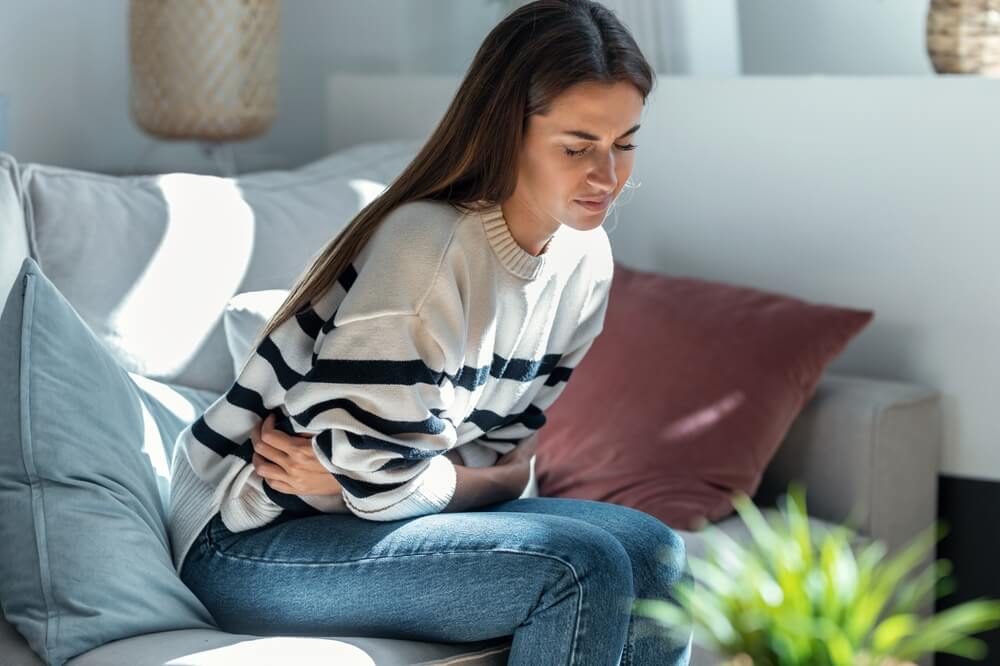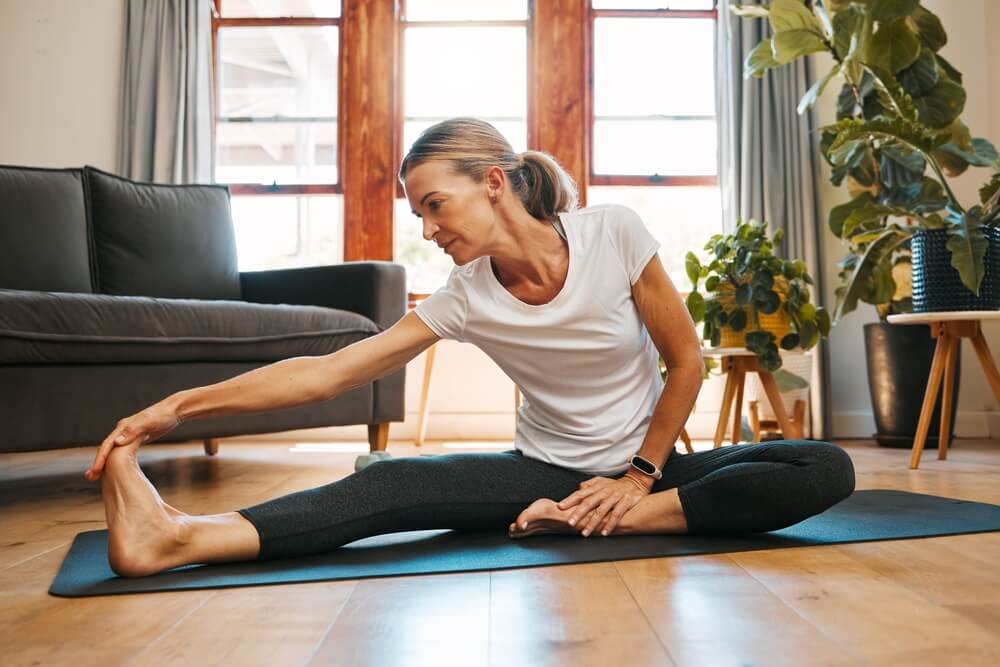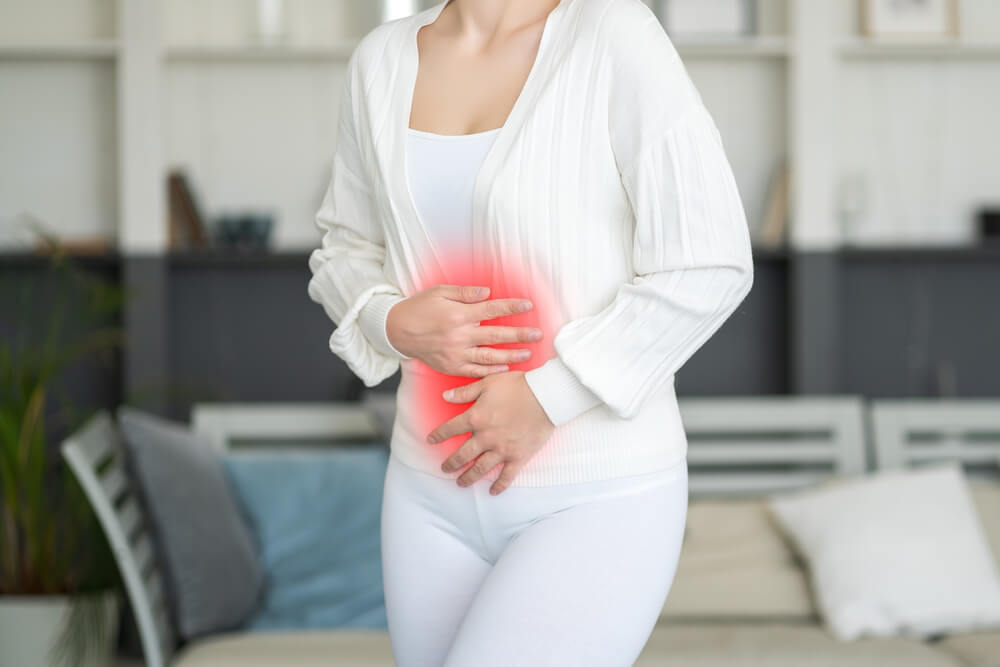Dealing with period cramps can be a monthly challenge for many women, impacting daily activities and overall well-being. In today’s blogpost we want to get into effective menstrual cramp relief strategies, including various home remedies for cramps and lifestyle changes that can make a significant difference in managing menstrual discomfort.
If you are trying to find high-quality gynecology care in Loxahatchee, FL you are at the right place. By choosing to request an appointment now, you are choosing to give your trust to our expert team and ensure that your reproductive health is intact regardless of potential complications and issues that might arise.
Understanding Period Cramps

Understanding period cramps is essential for anyone navigating the challenges of menstrual discomfort. Period cramps, also known as dysmenorrhea, occur as a result of the womb contracting in order to shed the lining during menstruation. This process, while natural, can lead to varying degrees of pain and discomfort.
There are two main types of dysmenorrhea:
- Primary: Primary dysmenorrhea is the most common cause of menstrual cramps and typically occurs in the absence of any underlying medical condition. It is a natural part of the menstrual cycle and is not associated with reproductive health issues.
The pain is usually felt in the lower abdomen and pelvis and is caused by the contraction of the uterus as it sheds its lining during menstruation. Primary dysmenorrhea often begins one to two days before menstruation and can last from two to four days. While the pain can vary in intensity, it is generally manageable with over-the-counter medications, lifestyle adjustments, and home remedies.
- Secondary: Secondary dysmenorrhea differs from primary dysmenorrhea as it is associated with an underlying medical condition affecting the reproductive organs. Conditions such as endometriosis, uterine fibroids, or pelvic inflammatory disease can lead to secondary dysmenorrhea. Unlike primary dysmenorrhea, the pain associated with secondary dysmenorrhea may begin earlier in the menstrual cycle and last longer.
The intensity of the pain can be more severe, and it often requires a more comprehensive approach to management, including medical interventions. Identifying and treating the underlying cause of secondary dysmenorrhea is crucial for effective relief, and consultation with a healthcare professional is recommended for accurate diagnosis and tailored treatment plans.
The Quest for Menstrual Cramp Relief
The quest for menstrual cramp relief is a universal journey undertaken by countless women seeking respite from the discomfort and pain associated with menstruation. For many, this pursuit involves exploring a myriad of options, ranging from conventional over-the-counter medications to natural remedies and lifestyle adjustments. Over-the-counter nonsteroidal anti-inflammatory drugs (NSAIDs) like ibuprofen are commonly relied upon to mitigate pain.
Simultaneously, a growing trend towards natural remedies involves embracing the healing properties of herbs such as ginger or turmeric and the calming effects of herbal teas like chamomile or peppermint. Beyond medications, lifestyle adjustments play a pivotal role, with heat therapy, exercise, and mindfulness techniques entering the arsenal of potential solutions. This ongoing quest reflects a desire for comprehensive, personalized strategies that empower women to reclaim control over their menstrual health, enhancing their overall well-being.
Period Pain: A Closer Look
As mentioned, the experience of period pain varies widely among individuals, with some encountering mild discomfort and others grappling with intense cramps that can disrupt daily activities. Understanding the distinct types and triggers of period pain is pivotal in devising effective management strategies, whether through over-the-counter medications, lifestyle adjustments, or medical interventions. By delving deeper into the complexities of period pain, individuals can better navigate their unique experiences and adopt tailored approaches for relief and improved quality of life.
Over-the-Counter Medications
For many women, the go-to solution for period pain is over-the-counter (OTC) medications. Over-the-counter medications play a crucial role in providing quick and accessible relief for period cramps. Nonsteroidal anti-inflammatory drugs (NSAIDs) like ibuprofen are commonly used to alleviate menstrual pain by reducing inflammation and minimizing discomfort. These medications are widely available, offering a convenient and effective solution for many women seeking relief from the monthly challenges of period cramps.
Natural Remedies for Cramp Relief
Natural remedies for cramp relief offer an alternative approach to managing menstrual discomfort. Herbs like ginger and turmeric, known for their anti-inflammatory properties, can be incorporated into diets or taken as supplements to potentially ease cramps. Additionally, herbal teas such as chamomile and peppermint provide a soothing effect, contributing to a holistic and natural strategy for alleviating period cramps.
Acupuncture and Acupressure
Traditional Chinese medicine offers alternative approaches to cramp relief. Acupuncture, involving the insertion of thin needles into specific points on the body, and acupressure, applying pressure to these points, have been reported to provide relief for some individuals.
Mind-Body Techniques
Mindfulness meditation, yoga, and deep breathing exercises are gaining recognition for their potential in managing period pain. These practices promote relaxation and reduce stress, which can contribute to a more positive menstrual experience.
Home Remedies for Cramps
Many people are leaning more and more on at home remedies for cramps. Here are some of the most popular solutions:
- Heat Therapy: Apply a hot water bottle or heating pad to the lower abdomen to relax the uterine muscles and reduce cramp pain.
- Hydration: Stay well-hydrated to help minimize bloating and promote overall well-being during menstruation.
- Balanced Diet: Consume a diet rich in nutrients, including calcium, magnesium, and omega-3 fatty acids, to support muscle health and reduce cramp severity.
- Herbal Teas: Drink soothing herbal teas like chamomile, peppermint, or ginger, which may have anti-inflammatory properties and help ease cramps.
- Exercise: Engaging in regular physical activity can contribute to overall well-being and may help reduce the severity of menstrual cramps. Specific exercises and stretches target the pelvic region, promoting blood flow and minimizing pain.
- Essential Oils: Aromatherapy with essential oils like lavender or clary sage may provide relaxation and help alleviate cramp discomfort.
- Omega-3 Fatty Acids: Incorporate foods rich in omega-3 fatty acids, such as flaxseeds, chia seeds, and fatty fish, to reduce inflammation and ease cramps.
- Limit Caffeine and Alcohol: Reduce consumption of caffeine and alcohol, as they can contribute to dehydration and potentially exacerbate cramps.
- Magnesium Supplements: Consider taking magnesium supplements, as magnesium may help relax muscles and alleviate menstrual cramps.
- Deep Breathing Exercises: Practice deep breathing exercises to promote relaxation and reduce stress, which can contribute to cramp relief.
Remember, individual responses to home remedies may vary, and it is advisable to consult with a healthcare professional before trying new approaches, especially if you have any underlying health conditions.

Period Cramp Relief: Lifestyle Adjustments
Adopting a healthy lifestyle can have a positive impact on menstrual cramp severity. Adequate hydration, balanced nutrition, and sufficient sleep contribute to overall well-being and may indirectly alleviate period pain. This is a long process, but for some women absolutely worth it. Try it!
Contact Us for More Information!
In conclusion, finding effective menstrual cramp relief involves exploring a combination of medical, natural, and lifestyle-based approaches. From OTC medications to home remedies, and traditional practices to mind-body techniques, there is a wealth of options to tailor a personalized plan for managing period cramps. Remember, period cramp relief is not one-size-fits-all, and it may take time to identify the most effective strategies for individual needs.
With the right approach, women can regain control over their menstrual health and find relief from the monthly challenges of period cramps, so schedule a consultation today and make those days of the month enjoyable again.


